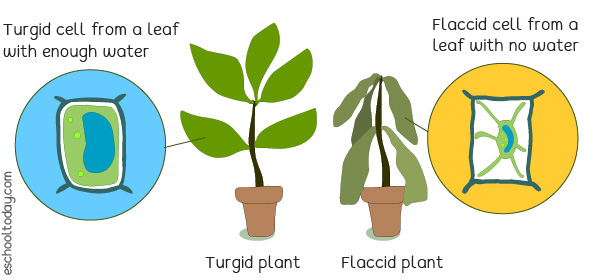- Photosynthesis
- Recommended Lessons
Water for photosynthesis
Plants get the water they need for photosynthesis through their roots. The roots have a type of cell called a root hair cell. These root hairs project outward from the root into the soil. Roots have a big surface area and thin walls, which allow water to pass through them easily.

Root cells do not contain chloroplasts, as they are normally in the dark and cannot photosynthesize.
Plants need water for other vital functions such as:
- Provide dissolved minerals that keep the plants healthy.
- Provide a medium for transporting minerals.
- Keep the plant firm and upright.
- Keep the plant cool and hydrated.
- Allow other chemical reactions to occur in plant cells.
